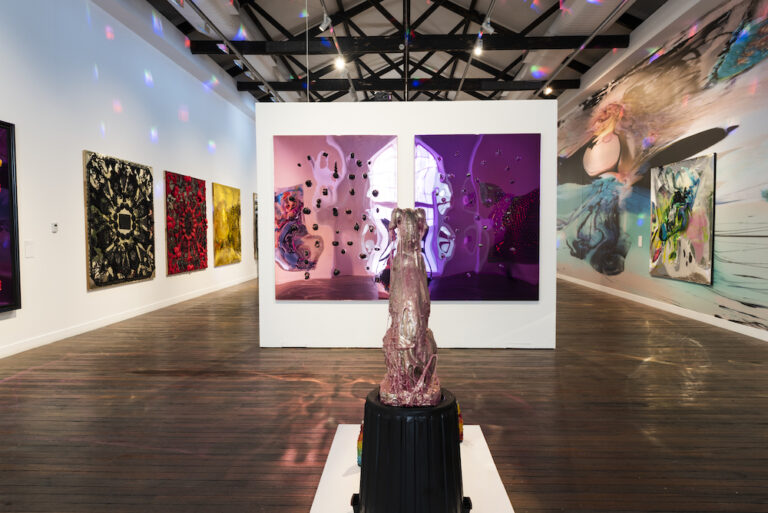
Eddie and Arthur thought too small

Yes, as through this world I’ve wandered
I’ve seen lots of funny men;
Some will rob you with a six-gun,
And some with a fountain pen.
– Woody Guthrie
The ICAC inquiry into the Sydney Water Holdings scam makes fabulous reading. The distinct impression we’re getting is that here was a bunch of conscienceless pirates who, with a mere 36 dollars in the corporate kitty, claimed they had a business empire “worth” $200 million. And they had the outrageous front to charge Sydney Water – which is to say the public – for everything from limo hire and wedding presents for their staff to donations to the Liberal Party.
What sort of people are these, the Obeids and Sinodinoses, whose idea of the good and honourable life seems to be about luxury this and luxury that? It’s almost impossible to imagine Eddie or Arthur enjoying a quiet morning at the art gallery, or fixing some broken furniture, or practising guitar, or even settling down with a good book. If they went to the gallery, they wouldn’t be standing contemplatively in front of something masterful, they’d be trying to figure out how to get it out of public hands so they could make a buck out of it. And then they’d retire to the restaurant for a power lunch.
Politics is freighted down with people like these, and we have to ask why.
Once upon a time, a long time ago, the idea that you could make a lot of money out of a career in politics was held in check by the very real firewalls that had been constructed between politics, the public service and business. On the Labor side of politics there was also the constraint imposed by socialist ideology, but that’s long gone.
Oh yes, back in the day, it was very widely accepted that certain types of economic activity amounted to what were termed “natural monopolies”. We’re talking about roads, ports, railways, public transport, postal services, the telephone, fire brigades, town planning, water and sewerage. These were things that conservatives could agree created the playing field on which private enterprise could operate.
It was just common sense that one didn’t want, or need, competing bus services along the same route. The public wanted the bus to turn up frequently, and on time, and be clean, cheap and reliable. True, at the margins, there was a place for private initiative – for “mom and pop” bus companies, for example, in new low-density suburbs on the fringe of the city. But it was accepted that as patronage grew, the government operation – with its economies of scale, better access to capital, and better trained, more flexible, pool of labour – would probably take over.
As for water and sewerage – well, that was the preserve of the wonderfully-named Metropolitan Water Sewerage and Drainage Board, the MWS&DB. Staffed by public service engineers and workers, they designed and built the basic systems we use today. If the job was beyond the capacity of their workforce they put it out to competitive tender. It was a remarkably successful system that delivered excellent infrastructure projects at prices we can only dream about today. That’s the system Australian Water Holdings was trying to break up.
Trouble is, in the Thatcher era, market fundamentalist ideology became all the rage. The old barriers started disintegrating and, from the early 1980s onwards, underlying greed was unleashed and worse and worse people flocked to politics to get a piece of the action.
The trouble with the ICAC investigation is that the commission is shutting the stable door long after the horse has bolted. One way of dealing with the form of outrageous conflict of interest now being exposed is simply to make it legal. And that’s what the O’Farrell government has done with the establishment of Infrastructure NSW.
The act of parliament that set up Nick Greiner’s brainchild dispensed with the whole notion of a barrier between the public and the private, and put what’s left of the public infrastructure and planning sector at the disposal of naked private greed. That’s what WestConnex, for example, is all about. Take a look at the new planning maps of the inner west and you’ll find a spreading stain of “urban activation” zones – hectares and hectares of heritage homes earmarked for compulsory acquisition and on-selling to developers. The tollway operators hope to generate enough new traffic with “vertical sprawl” to salvage a failed business model; the property developers don’t give a damn about traffic or parks, they just want to build high-rise across the old suburbs; the construction giants just want decades of big government-guaranteed profits stretching ahead of them and the Macquarie Bank just wants to make hundreds of millions in fees for setting up the deal.
Where Eddie and Arthur went wrong is that they thought too small. If you’re going to do looting, it’s better to go big. Make it big enough and it’s gotta be legal.









